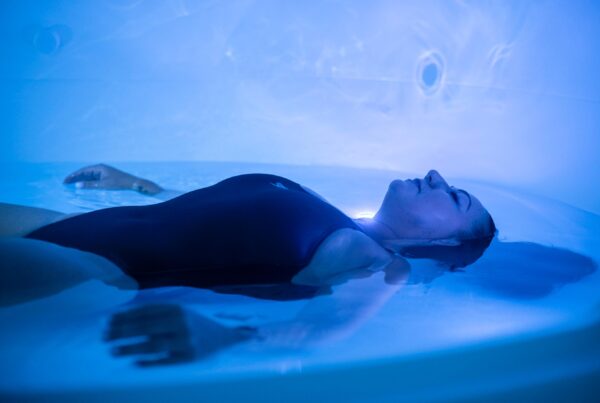Can Floating Help Anxiety?
Numerous studies have shown floating to be effective in helping anxiety. In 2018 the Laureate Institute for Brain Research (LIBR) found that a single 60-minute floatation therapy session led to a significant reduction in anxiety, and improvement in mood for 100% of the 50 participants with stress and anxiety-related issues.
Furthermore, the average reported a feeling of benefit from the sensory deprivation lasted 36 hours, versus a more typical 4-8 hours for anxiety medication such as Xanax.
It is thought that regular floating can train the nervous system to stay in balance for periods up to several weeks, so though more research would be beneficial to prove long term improvements for anxiety (it has been shown for sleep), it is possible that incorporating sensory deprivation or float therapy into your well-being routine could deliver lasting lifestyle benefits.
Meditation and Floatation
There are well-proven benefits to the brain, derived from meditation, with recent research even showing that it is possible to reverse the ageing of grey matter, as well as reduce feelings of anxiety.
Advanced practitioners of meditation often aim for something called ‘Theta State’, which is a state of relaxation, during which the brain and body are able to activate deep healing processes commonly associated with sleep.
During this state, it has been shown that stress hormone cortisol and adrenaline significantly reduce, which in turn brings down perceived levels of stress and anxiety.
It’s little known, but beginners to mindfulness have been shown to be able to reach this ‘Theta state’ with as little as 40 minutes in a sensory deprivation tank, leading to average cortisol reductions of ~20% from 60 minutes of float therapy.
Wider Benefits of Floating
In 2016, floatation therapy was shown to reduce generalized anxiety disorder (GAD) symptoms, such as depression, sleep difficulties, irritability, and fatigue. 46 participants with self-reported GAD took part in a study by Karlstad University (Sweden) showed that ‘the GAD-symptomatology was significantly reduced for the treatment group’ by a short course of float therapy.
Float Hub
We appreciate that people float for many different reasons, many for coping with stress and anxiety. Due to this, we cultivated the most calming space we could imagine, encourage people to relax during their time at the centre, unrushed, and are actively developing a number of courses to further benefit our customers.
Our 6 week stress release program has produced some results we ourselves have been amazed at, with effects such as one PTSD sufferer now being able to use public transport alone, for the first time in years (with due PPE, of course).
If you would like to know more on the 6-week stress release programme, email in confidence to tony@floathub.co.uk, and if you simply like to experience the effects of floating, you can book online here.





